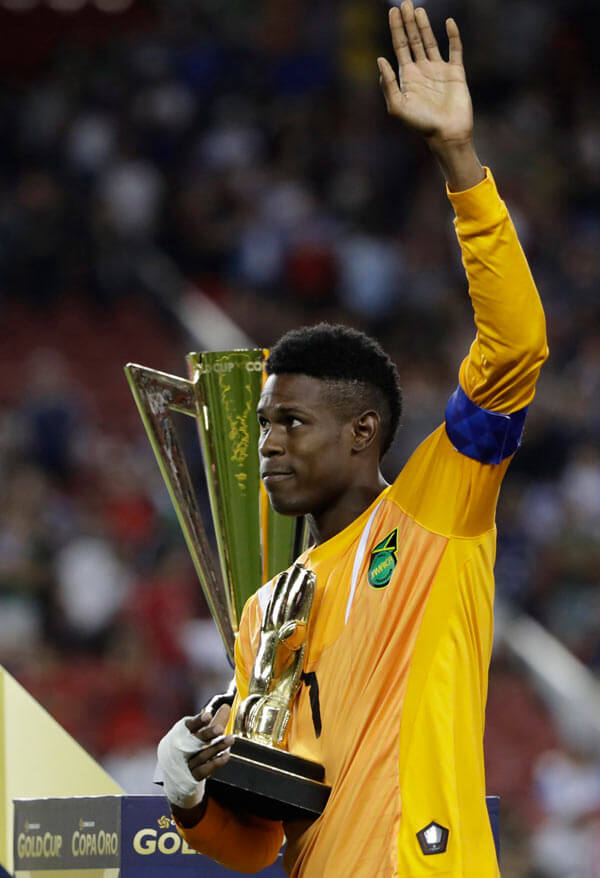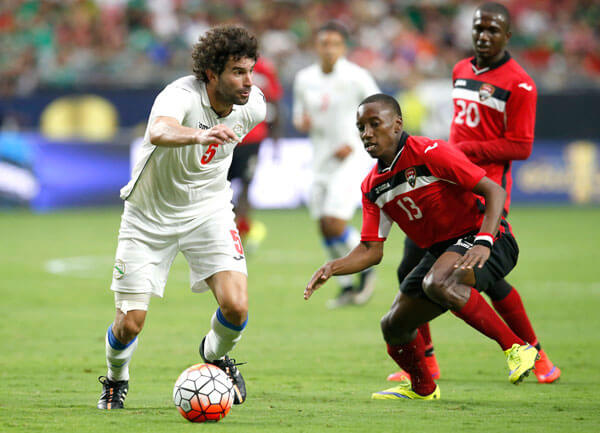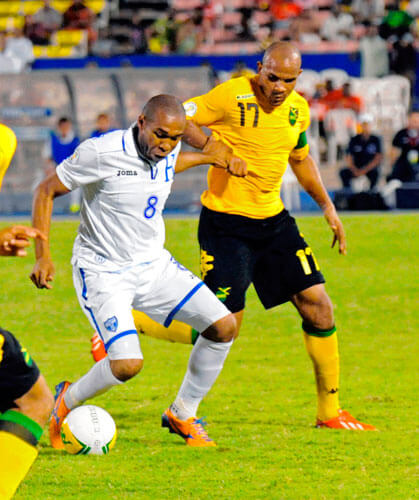The USA’s 2-1 defeat of Jamaica to win its sixth CONCACAF Gold Cup was Déjà Vu! Caribbean teams defeat themselves before they start when over and over again they employ a defeatist, defensive strategy against the Americans.
On Wednesday, July 22 before 63,032 fans in Levi Stadium in Santa Clara (CA) and before a large international television audience, Jamaica sat back deep in its half of the field and employ a low-pressure defense, allowing the U.S. to play the game in front of its goal, hoping to force mistakes for the counterattack. The problem is, when Jamaica decided to fight the battle so deep into its half of the field, it risks committing fouls and other mistakes, which could lead to free kicks for the USA.
And guess what? After long minutes of USA possession in Jamaica’s goal area, Romario Williams committed a desperate foul on U.S. captain Michael Bradley and Jozy Altidore’s 20-yard free kick put the U.S. ahead, 1-0, at the 45-minute mark. Altidore scored his 39th international goal and said after that his tally meant a lot to him; he credited U.S. coach Bruce Arena, who took over the team from Jurgen Klinsmann, for “bringing a new energy to the team and giving it a tremendous lift.”
Another problem with Jamaica’s low-pressure defense is that when it wins the ball, the attack starts so deep into its half, it has to come a long way to the other end of the field. This is very tiring and allows the USA time to create a defensive shape to stymie the attack. What compounded the situation for Jamaica and made it doubly difficult to counterattack is the fact that the USA always fights to retrieve the ball at the moment it loses possession; the Americans tackled the Jamaican player in possession immediately, right in front of Jamaica’s goal area, because this is where the Reggae Boyz chose to do battle.
The situation creates additional fatigue on the Jamaicans, and especially when you give up so much possession to the Americans and let them play, they develop a passing rhythm that helps them maintain possession for long periods, which means that the Jamaicans did more chasing and the game became much harder. After the 1-0 half time score, the Americans had dominated possession in the game to the tune of 63 percent to Jamaica’s 37 percent.
Even when Je Vaughn Watson scored directly from a Kemar Lawrence corner kick in the 50th minute to level the score at 1-1 for Jamaica, the Reggae Boyz were unable to take the upper-hand and increase its momentum. The second half was a repeat of the first: waiting deep in its half of the field and hoping for mistakes to counterattack. This defensive strategy usually has a negative effect on the team executing it, in this case Jamaica, as it reveals a lack of trust in players to go forward, pressure the ball as early as possible in the opponent’s half and play a positive game. Conversely, the message that the USA got from Jamaica’s strategy is that the Reggae Boyz lack the confidence to go toe-to-toe with them, and this gave the winners a psychological advantage from the outset.
So, the USA was allowed to play, pass the ball and probe for the opening to score until much fatigue settled in; finally, by the 88th minute, when the tired Jamaican legs failed to clear the ball from in front of the goal area, the positive and still hard-running Americans scored in the 88th minute through Jordan Morris, with a mere two minutes left to play, for its victory. Said Morris after the game about scoring the winner, “It feels unbelievable; winning and being part of the team.”
All told, Jamaica’s negative strategy allowed for total domination by the U.S. as the Americans got off 13 shots to Jamaica’s six (six U.S. shots on goal to Jamaica’s three); took six corners to Jamaica’s three; a frustrated Jamaica into committing seven more fouls (201-13), while Jamaica was totally dominated in every category.
Caribbean teams have to be more positive against the USA and other CONCACAF teams; Trinidad and Tobago and St. Vincent and the Grenadines employed the same perilous strategy versus the USA in early-round of World Cup qualifying games last year. Caribbean teams have to be better physically prepared to go forward and pressure the ball and play as much of the game in the opponent’s half of the field. This is a positive approach and sends a positive message to taking the fight to the opponent instead of the converse; it gives Caribbean teams their best chances to win.
In the post tournament awards, Jamaica’s Andre Blake won the Golden Glove award as the best goal keeper; young Canadian forward Alphonso Davies copped the Young Player award and also received the Golden Boot award as the leading goal scorer. The USA captain Michael Bradley received the Fair Play award for the U.S. and won the Golden Ball award as the best player in the tournament.


























